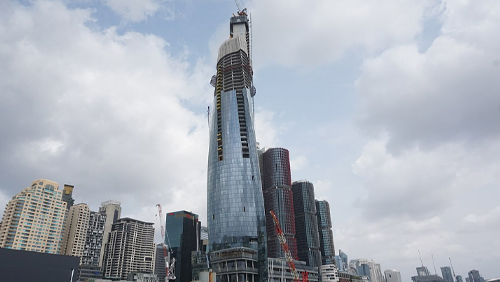
The New South Wales (NSW) government has realized that it may not have completely considered all possible scenarios when it signed an agreement with Crown Resorts in 2014. The casino operator has come under fire from all sides recently for everything from rigging gaming machines to money-laundering claims, and its value as a licensed operator has come into question. Some have asserted that it is unsuitable to continue to hold a license, but Crown has an exit strategy should the worst come to pass. It has the right to potentially claim billions of dollars in damages from the government under the current language in its agreement with NSW, a clause that, perhaps, the government never thought would need to be used. Now, lawmakers are working to plug the loophole and prevent Crown from being able to trigger any massive payouts.
When the government and Crown sat down at the negotiating table in 2014, the casino operator managed to get included in their agreement a clause that provides compensation of up to 10.5 times the value of any operating segment that is altered by the government. If the company earned, for example, $300 million in its most recent year and could no longer operate, the government could be on the hook for as much as $3.15 billion, in theory.
Now, MP Justin Field wants to make sure NSW’s assets are covered. He has submitted a bill that would strip the agreement, which had been agreed to by former NSW Premier Mike Baird, in hopes that the government can protect itself if Crown loses its license. That determination is expected to happen by next February, following the lengthy and still-ongoing inquiry into the company’s activities.
Field says of the new initiative to break free from the indemnification clause, “The agreement between Crown and the government suggests any action taken as a result of this inquiry to prevent organized crime and money laundering at a future Barangaroo casino could trigger a compensation claim by Crown. That’s outrageous. The parliament and the regulator should never have had its ability to regulate in the public interest undermined as a result of a commercial agreement.”
There’s no indication of when the bill might be considered. Even if the legislation were approved, it’s doubtful Crown would simply accept it and move on. So, this fight still has a long way to go, regardless of what fate lies ahead for the casino operator.
Wrapped up in all the drama surrounding Crown is its former chairman, and still its largest shareholder, James Packer. He has been called out for a number of questionable actions, both before and after leading the company, and his time as a shareholder heavyweight could be coming to an end. During the ongoing inquiry, Packer’s lawyer, Noel Hutley, has continued to try to defend his client to prevent any forced changes, but his latest arguments fall way short of their mark.
Packer has been accused of using his 36% share to continue to run the company, even after removing himself. Hutley admits that his client has provided “advice” to Crown in return for trading updates, but adds, “[Packer] was a shareholder, and a large one. He was interested, at a personal level, in the outcome. That doesn’t mean he’s in a position of control.”
In reality, that’s exactly what it means. A former chairman holding 36% of a company and providing “advice” to that company is a quintessential example of control, and it’s doubtful the members of the inquiry panel will swallow the bait.